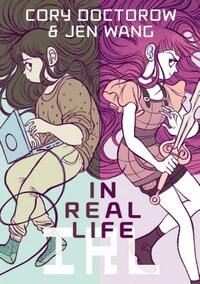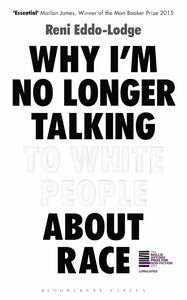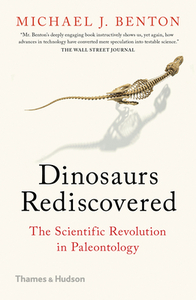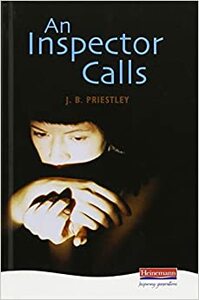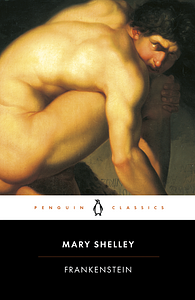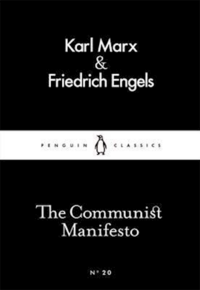You need to sign in or sign up before continuing.
Take a photo of a barcode or cover
mars2k's Reviews (234)
dark
emotional
hopeful
inspiring
reflective
tense
fast-paced
Man Alive is a fantastic book. McBee’s prose is casual and down-to-earth yet poetic at the same time, and I really like the recurring use of ghosts as a metaphor. The author has an excellent feel for pacing, recognising that some chapters should be short and quick while others can be allowed to linger and build tension. The subject matter can be pretty heavy and emotional so I couldn’t read it all in one go despite its low page count. Discussions of child sexual abuse are frequent and candid – just a heads-up.
My only major issue with the book is some of the phrasing. I can’t really say that the way McBee describes himself is inherently problematic or incorrect – he’s writing from his own experiences as a trans man and describing his own identity, after all. I must admit, however, that I did wince when he stated he was “born female,” and later in the book there are some implications that pre-T trans men aren’t really men, they’re just “passing” as men. These concepts have used to deride me and undermine my own identity as a trans person, so I found it quite upsetting to see them presented in such a matter-of-fact way here.
Again, I can’t really fault McBee for describing his own identity in a way that doesn’t sit right with me, but I have my own sensitivities, and this aspect of the book really struck a nerve and somewhat soured my experience reading it.
I still think Man Alive is excellent overall, though, which is why I’m giving it four and a half stars. It’s definitely something I’d recommend.
Got a third of the way into the book and I'm just not interested. I don't really care for the characters, the world, or the plot, and the writing is dense and tough to get through.
I may return to it at some point but for now I'm moving on to something else.
I may return to it at some point but for now I'm moving on to something else.
challenging
informative
slow-paced
I don’t think The Creativity Code is bad per se, but it’s just not for me. I suppose I’m more interested in “creativity” than “code,” so I’m not really the target audience for this heavily mathematical book.
It certainly has its moments – I quite enjoyed the chapters “Painting By Numbers” and “Language Games” – but I felt as though much of the content could have been cut and the book’s length easily could have been halved. I hate to say it, but I’ve seen videos on the topic which are more engaging and more concise, and at times I found myself wishing I was watching one of those instead of reading this book.
I don’t regret reading it, but I’m glad I’m done so I can move on to something more to my liking.
adventurous
hopeful
fast-paced
Strong character development:
No
Loveable characters:
No
Diverse cast of characters:
Complicated
Flaws of characters a main focus:
Complicated
In Real Life is a book which tries to be too many things at once. It wants to be a book about feminism and a book about workers’ rights at the same time, but neither concept is nearly as fleshed-out as it ought to be. The message is muddled and, at times, contradictory. Its tone is confused as well – the “gamer girl” gimmick is too patronising for older audiences, but the swearing and the heavy themes it alludes to make it unsuitable for young readers.
Before I go on to discuss the writing further, I’d like to mention that Jen Wang's artwork is wonderful throughout. The colour palettes and the line weight make this graphic novel a pleasure to read, even if I found the story itself a little disappointing.
The book begins with an introduction. There are some really good ideas in there so it’s a shame they weren’t handled as well as they could have been; the story is too fast-paced, meaning there’s no time to dwell on the “sticky, tough questions” the writer, Cory Doctorow, wants us to consider. Everything just kind of happens. Ideas are thrown together but not given space to be properly explored, resulting in a flat story with a lot of wasted potential.
Every problem is approached with a detached and somewhat dismissive attitude. Girls always choose male avatars in their games? Clearly it just hasn’t occurred to them to play as girls. Factory workers in China are being exploited? Clearly they’ve never heard of unions. It’s a naive approach to say the least. The reasons why someone might play as a man (eg: to avoid online harassment) or work in poor conditions (eg: because they desperately need the money) just aren’t considered. The story does play into the white saviour trope.
In Real Life is ambitious and well-intentioned, but it doesn’t quite stick the landing. It's not a bad book but it certainly could have been better. For that reason, I’m giving it three stars.
challenging
hopeful
informative
reflective
medium-paced
Why I’m No Longer Talking to White People About Race serves as a good introduction to anti-racist activism and ideas like white privilege and intersectionality. It’s accessible and it’s a surprisingly quick read. The first chapter (“Histories”) is long and tough, but the pace does pick up after that.
I appreciated that the book focused on British history, not just American. I also quite liked the use of the term “structural” rather than “institutional” to more clearly explain the way racism permeates society. I found that helpful.
I do, however, have some questions regarding the interview with Nick Griffin, namely “why did Eddo-Lodge not mention the antisemitic dog-whistles he was using?” and “why was the source he gave re: demographic change taken at face value and not fact-checked?”
Still, I did find this book incredibly useful. I would recommend it to other white people looking to better understand race and racism.
challenging
funny
informative
inspiring
medium-paced
Dinosaurs Rediscovered is one of the best nonfiction books I’ve had the pleasure of reading. It’s accessible without being patronising, and each chapter is broken down into easily digestible chunks and rounded off with a summary. There are lots of images, too – not just paleoart illustrations, but also diagrams, graphs, and maps. The book concludes with a neat afterword, a fun list of K-Pg extinction hypotheses, a further reading section, and an index.
Despite the title, dinosaurs themselves are not the main focus of this book. Benton chooses instead to explore the ways in which palaeontology has developed from speculation to science over the past few decades, chronicling how advances in technology and methodology have improved our understanding of Mesozoic life.
I adored this book from the very beginning, and I expect it’s one I’ll revisit fairly frequently. It introduced me to ideas I had never come across before, and it offered some fascinating insights I hadn't considered. I did find some chapters more interesting than others, but I think that’s mostly down to personal preference so I can’t really fault the author for that. Five stars.
adventurous
tense
medium-paced
Strong character development:
No
Loveable characters:
No
Diverse cast of characters:
Complicated
Flaws of characters a main focus:
Yes
I really didn’t like this book. The Atlantropa Articles is incredibly shallow, with a very "wow cool robot" approach to storytelling. It isn't particularly well written. It's repetitive, the pacing isn't well thought out, there are a few SPAG mistakes here and there, and the author relies heavily on telling instead of showing. He spends the majority of the book engaged in a strange fetishisation of vehicles and weaponry, and he has no time for emotional depth or philosophy.
A key trait of this alternate history world is that "Nazism never disappears" but, in reality, it never did disappear. Franklin doesn't seem to understand fascism well at all, and yet he chose to write a story with Nazis in the starring roles – it's written from the perspective of Ansel, a captain of the Eternal Reich. And I have to wonder why he chose to use this character as the POV. I don't know how else to say this but it kinda felt like a power fantasy? I don't know. I don't know what I'm supposed to take away from this.
Also Muslims are brought up, painted as barbaric warlords whose "caliphate" is just as bad if not worse than the Reich, then forgotten about. Very cool.
A key trait of this alternate history world is that "Nazism never disappears" but, in reality, it never did disappear. Franklin doesn't seem to understand fascism well at all, and yet he chose to write a story with Nazis in the starring roles – it's written from the perspective of Ansel, a captain of the Eternal Reich. And I have to wonder why he chose to use this character as the POV. I don't know how else to say this but it kinda felt like a power fantasy? I don't know. I don't know what I'm supposed to take away from this.
Also Muslims are brought up, painted as barbaric warlords whose "caliphate" is just as bad if not worse than the Reich, then forgotten about. Very cool.
I find the Atlantropa concept interesting (which is why I picked up this book), but Franklin didn't come up with it so I can't give him too much credit. I feel like two stars is generous. It must be said that almost all the positive reviews I've seen were written by self-professed fans of the author. I saw one which said "[Ansel's] worldview is very understandable" which is... worrying.
dark
mysterious
reflective
sad
tense
medium-paced
Strong character development:
Yes
Loveable characters:
Complicated
Diverse cast of characters:
No
Flaws of characters a main focus:
Yes
An Inspector Calls offers some interesting social commentary and a message of accepting responsibility and considering consequences of your actions, not only for yourself but for others too. The characters are well-developed with distinct personalities, which is quite impressive for such a short book.
That said, I re-read this book earlier this year and it wasn't as good as I remember. That's not to say it's bad – I did still enjoy it – I just didn't have the same reaction I had the first time round. I've seen the play performed on stage as well, which in my opinion was better than just reading the script.
That said, I re-read this book earlier this year and it wasn't as good as I remember. That's not to say it's bad – I did still enjoy it – I just didn't have the same reaction I had the first time round. I've seen the play performed on stage as well, which in my opinion was better than just reading the script.
adventurous
dark
emotional
mysterious
reflective
sad
tense
medium-paced
Strong character development:
Yes
Loveable characters:
Complicated
Diverse cast of characters:
No
Flaws of characters a main focus:
Yes
Frankenstein is, for the most part, a story about Victor Frankenstein and not the monster he creates. Maybe that’s common knowledge, but that didn’t stop me being intrigued and pleasantly surprised by this major departure from the pop culture imagination of the tale, in which the monster (often referred to as Frankenstein) is the main focus while Victor is reduced to little more than a “mad scientist” caricature. The book felt like an interesting take on the Frankenstein story, which is weird because this is the take on Frankenstein, the original Frankenstein story.
To call Victor Frankenstein melodramatic would be an understatement. The epitome of his “woe is me” attitude would be the trial scene (probably my favourite part of the book) in which an innocent woman has been framed for a murder she did not commit, and all Frankenstein does is fret about how difficult it is for him knowing the truth but keeping it a secret. At times this wildly over-the-top angst was hilarious – I’m not sure whether or not that effect was intended.
At first I wished the monster would feature more, but I now think he’s best used sparingly. In fact, the monster’s account is probably the weakest part of the story. It was kind of dry and lasted far longer than it needed to. Having the monster stand there monologuing for multiple chapters kind of killed the magic for me.
To be fair, the book was written by a teenager over two hundred years ago, so I can’t expect it to be perfect or to cater to my tastes exactly. I did enjoy it, though, which is why I’m giving it four stars.
challenging
hopeful
reflective
medium-paced
I’d been meaning to read The Communist Manifesto for several years now, and I’m not sure why I kept putting it off since it’s so short and quick to read. I have to admit, however, I am a little disappointed.
The book didn’t teach me anything I didn’t already know, and it didn’t open me up to new ways of thinking, mostly because I already agree with the basic ideology it’s trying to convey. I know that this is seen by many as the foundational text of communism (and leftism generally) but I feel that others have communicated Marx and Engels’s points more clearly and more convincingly. Perhaps the Manifesto was revolutionary for its time, but I didn’t get much out of it besides ticking another item off my to-read list.
I don’t think The Communist Manifesto is bad per se, I just think there are better resources out there for learning about communism. I’m giving it three and a half stars, but it has to be said that at least half a star is purely out of respect for its historical significance.



